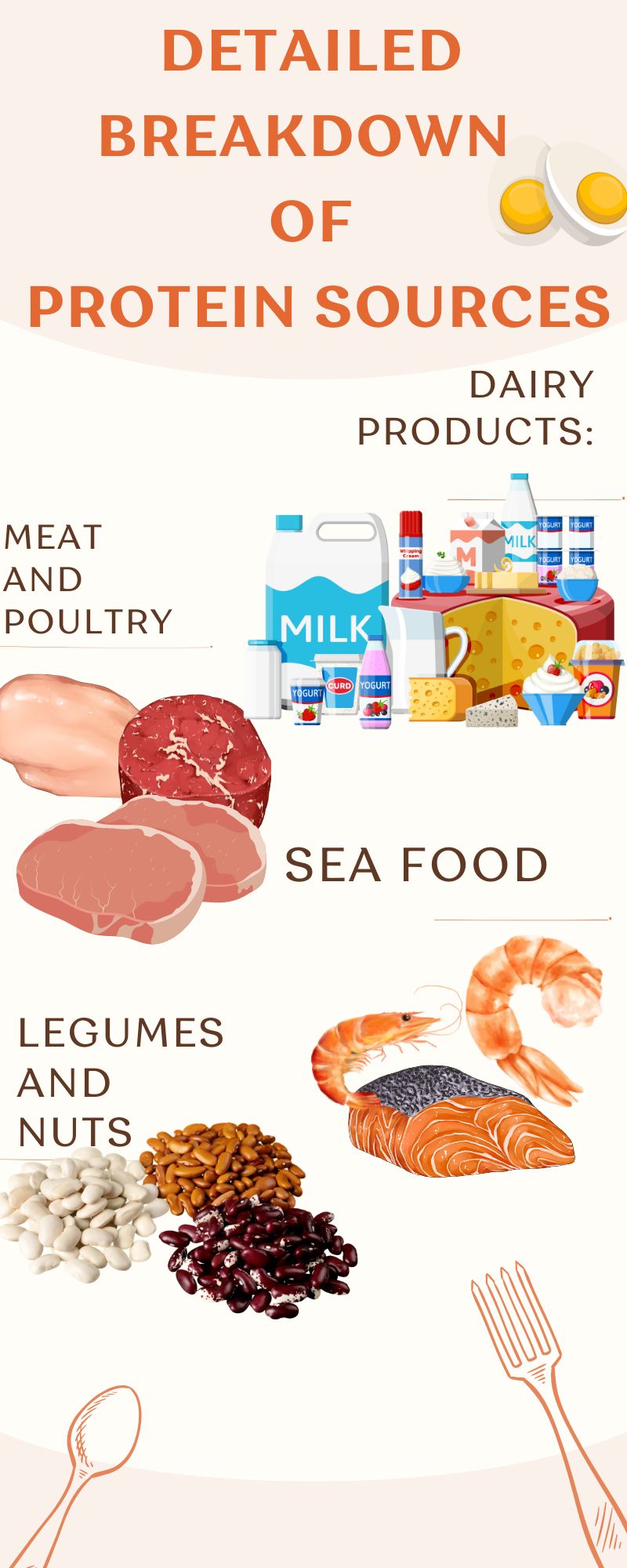March marks National Nutrition Month, an ideal time to examine America’s nutrition and diet. Protein is a crucial nutrient for the human body, integral to every cell, tissue, and organ, supporting growth and repair.
Proteins are abundant in various foods we consume regularly. The table below shows the Centers for Disease Control and Prevention’s (CDC) recommended daily protein intake:
Table of Contents
ToggleRecommended Daily Protein Intake by CDC
- Women: 46 grams
- Men: 56 grams
However, data from the 2005-2006 National Health and Nutrition Examination Survey (NHANES) revealed that adults are consuming significantly more protein than recommended. According to the survey, men were consuming an average of 101.9 grams per day, while women were consuming 70.1 grams per day. This is nearly double the recommended amount for men and significantly higher for women.
Excessive protein intake contributes to overall calorie consumption, which can lead to weight gain if the calorie intake surpasses the body’s needs. Protein is essential, but like all nutrients, balance is key to maintaining a healthy diet and preventing adverse health effects.
Detailed Breakdown of Protein Sources
- Meat and Poultry: Major sources of protein in the American diet include chicken, beef, and pork. A typical serving of chicken breast (about 3 ounces (0.11 kg)) contains around 26 grams of protein.
- Dairy Products: Dairy products like milk, cheese, and yogurt also contribute significantly. One cup of milk has about 8 grams of protein.
- Legumes and Nuts: Plant-based sources such as beans, lentils, and nuts provide a good amount of protein. One cup of cooked lentils contains approximately 18 grams of protein.
- Seafood: Fish and shellfish are other significant protein sources. A 3-ounce serving of salmon provides around 22 grams of protein.
Impact on Calorie Intake
High protein consumption, while beneficial for muscle repair and overall health, can lead to an increased calorie intake. For example, if a person consumes double the recommended protein, the extra calories from protein can add up, potentially leading to weight gain if not offset by physical activity or a reduction in other calorie sources.
Recommendations for Balanced Protein Intake
- Variety and Moderation: Ensure a balanced intake from various protein sources, including both animal and plant-based options.
- Portion Control: Monitor portion sizes to avoid excessive protein intake.
- Nutrient-Dense Foods: Opt for nutrient-dense foods that provide protein along with other essential nutrients, such as vitamins and minerals.
Conclusion
Balancing protein intake with other essential nutrients is crucial for maintaining a healthy diet. Awareness of how much protein is consumed daily can help prevent potential health issues related to excessive calorie intake. National Nutrition Month serves as a reminder to evaluate and adjust dietary habits for better health outcomes.
For more detailed information on dietary guidelines and recommendations, visit the USDA’s “What We Eat in America” database.
Related Posts:
- How Much Protein Do Adults Really Need Daily?
- One Weight Loss Strategy Is Far More Effective Than…
- America Has More Public Libraries Than Starbucks and…
- How Kentucky Ended Up With Millions More Barrels Of…
- Adult Inactivity Outside of Work - 10 Stats You Should Know
- ADHD May Shorten Adult Lifespan by Nearly a Decade,…









